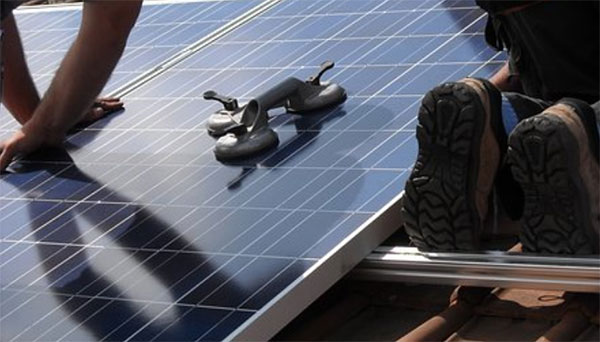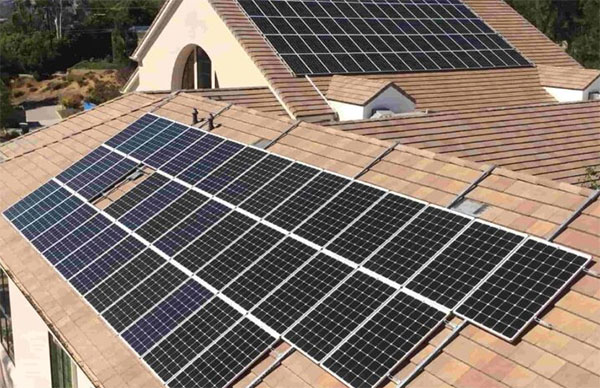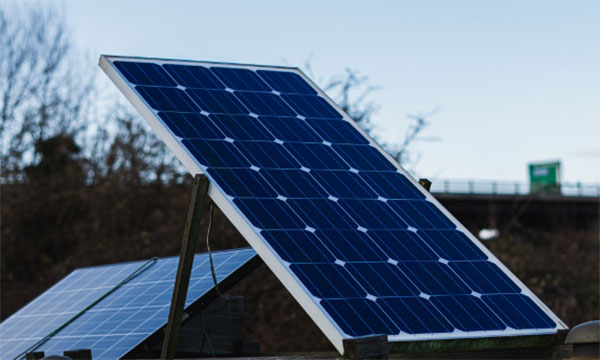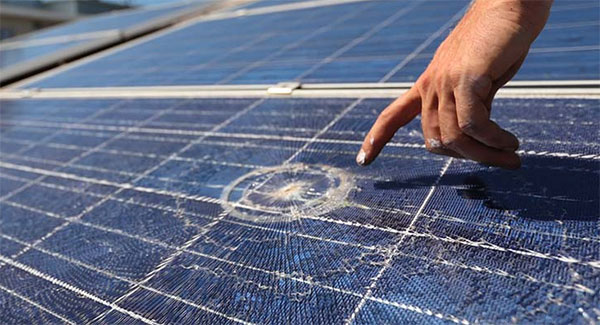
Lifespan of Solar Panels
Solar panels have revolutionized how we harness energy, offering a sustainable and cost-effective way to generate electricity. The lifespan of solar panels is a crucial factor for anyone considering solar energy as a long-term investment. Generally, solar panels last between 25 to 30 years, but this can vary based on several factors.
Factors Influencing Solar Panel Lifespan
- Quality of Materials: High-quality materials can significantly extend a solar panel's lifespan. Panels made with top-grade silicon and robust framing materials tend to last longer.
- Manufacturing Process: Advanced manufacturing techniques ensure better durability and efficiency in solar panels.
- Installation and Mounting: Proper installation and secure mounting protect panels from environmental damages and physical stress.
- Climate and Weather Conditions: Panels in areas with extreme weather conditions, like heavy snow or high winds, might have a reduced lifespan.
- Maintenance and Care: Regular cleaning and inspections can prevent damage and prolong the life of the panels.
Average Lifespan of Different Solar Panel Types
- Monocrystalline Solar Panels: Known for their high efficiency, monocrystalline panels can last over 30 years. They are made from a single crystal structure, which makes them more durable.
- Polycrystalline Solar Panels: These have an average lifespan of 25 to 30 years. Made from multiple crystal fragments, they are slightly less efficient but more cost-effective.
- Thin-Film Solar Panels: With a shorter lifespan of about 15 to 25 years, thin-film panels are lightweight and flexible but less efficient than crystalline types.
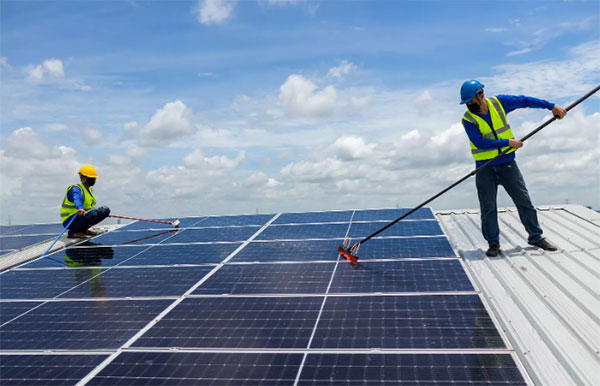
Economic and Performance Considerations
When evaluating the lifespan of solar panels, it's important to consider the long-term economic and performance aspects. Over time, the efficiency of solar panels can decrease, typically at a rate of 0.5% to 1% per year. This degradation rate means that after 25 years, a solar panel might operate at around 75% to 87.5% of its original capacity.
Cost and Value Over Time
- Initial Cost: The upfront cost of solar panels varies depending on the type and quality, with prices ranging significantly based on size and specifications.
- Maintenance Costs: Regular maintenance is generally low-cost but essential for maximizing lifespan and efficiency.
- Energy Savings: Over their lifespan, solar panels can offer substantial savings on electricity bills, often offsetting the initial investment.
- Resale Value: Homes with solar panels often have a higher market value, reflecting the long-term value of the installation.
Advantages and Limitations
Solar panels offer numerous advantages like reduced carbon footprint, low operating costs, and renewable energy generation. However, their performance can be influenced by factors like shading, orientation, and tilt angle. Additionally, the recycling and disposal of older solar panels pose environmental challenges, highlighting the importance of sustainable manufacturing and disposal practices.
In summary, the lifespan of solar panels is influenced by various factors, including the type, quality, and maintenance. Understanding these aspects can help in making informed decisions about solar energy investments, ensuring both economic and environmental benefits.
Maintenance Requirements for Solar Panels
Maintaining solar panels is essential to ensure their efficiency and longevity. While solar panels are generally low-maintenance, certain practices are crucial to get the most out of your solar energy system.
Routine Maintenance Activities
- Regular Cleaning: Dust, leaves, and other debris can accumulate on the panels, reducing their efficiency. Clean the panels every few months with water and a soft brush.
- Inspection for Damage: Check for cracks, discoloration, or water damage. It's essential to repair any damage promptly to prevent further deterioration.
- Monitoring Performance: Keep an eye on the power output. A significant drop in performance might indicate an issue that requires attention.
- Ensuring Clearances: Trim any overhanging branches or remove obstacles that might cast a shadow on the panels.
Seasonal Maintenance Considerations
- Winter Care: In snowy regions, gently remove snow from the panels. Be cautious not to scratch the panel surface.
- Summer Preparation: Ensure cooling systems and ventilation are working correctly to prevent overheating during hot months.
- Spring Check-Up: After winter, a thorough inspection and cleaning are advisable to address any issues that might have arisen during colder months.
- Autumn Adjustments: Adjust the tilt angle of the panels if necessary to maximize exposure to the sun's lower angle during winter.
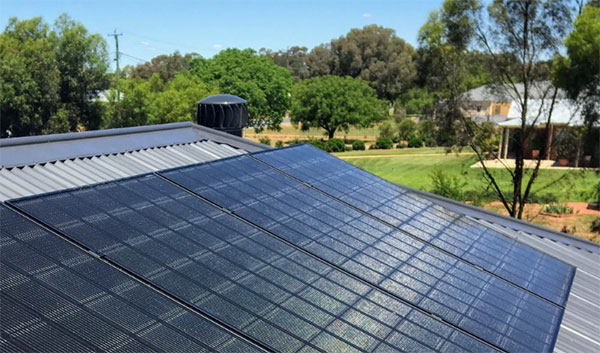
Economic and Efficiency Considerations
Proper maintenance not only extends the lifespan of solar panels but also maximizes their efficiency and economic benefits.
Cost of Maintenance
- Cleaning Costs: If you opt for professional cleaning services, the cost can vary but is generally affordable and infrequent.
- Repair Costs: The cost of repairs depends on the extent of damage and the warranty coverage of your panels.
- Efficiency Gains: Regular maintenance helps maintain optimal performance, translating to consistent energy production and savings.
Long-Term Value
- Maximized Lifespan: With proper maintenance, solar panels can exceed their expected lifespan, offering extended value.
- Energy Savings: Efficiently maintained panels ensure steady energy production, leading to sustained savings on energy bills.
In summary, regular and seasonal maintenance of solar panels is crucial for maintaining their efficiency and prolonging their lifespan. While the maintenance requirements are relatively minimal, they play a significant role in ensuring the panels operate at their optimal capacity, providing long-term economic and environmental benefits.
Performance Over Time
The performance of solar panels changes over time, influenced by various factors like degradation rates and maintenance. Understanding these changes is crucial for maximizing the return on investment in solar technology.
Degradation Rates of Solar Panels
Solar panels degrade gradually, losing a small percentage of their efficiency each year. This degradation rate is a key factor in determining the long-term value and effectiveness of a solar panel installation. On average, solar panels lose about 0.5% to 1% of their efficiency annually. This means a solar panel that starts with a
power efficiency of 20% may drop to around 18% to 19% after 20 years. However, high-quality panels with better technology might degrade at slower rates, as low as 0.3% per year.
Impact of Maintenance on Performance
Regular maintenance significantly impacts the performance of solar panels over time. Proper cleaning and upkeep ensure that panels operate close to their optimal efficiency. For instance, panels covered in dust or debris can lose more than 5% of their efficiency. In extreme cases, such as with bird droppings or heavy soiling, the loss can be as much as 20%. Therefore, routine cleaning and periodic professional inspections are essential.
Maintenance also includes checking for any physical damages like cracks or water seepage and ensuring the electrical connections and mounting systems are secure and functional. These measures prevent potential downtimes and efficiency losses due to damages.
Economic and Efficiency Implications
The performance of solar panels over time directly affects their economic value. While the initial
cost of installation can be significant, the long-term energy savings and potential government incentives can offset these initial expenses. Efficiently maintained panels ensure a steady and predictable energy output, allowing for more reliable financial planning and budgeting.
Furthermore, the resale value of a property with well-maintained solar panels is often higher. This increase in property value is a direct consequence of the long-term energy savings and environmental benefits associated with solar energy.
In summary, the performance of solar panels degrades over time, but at a predictable and manageable rate. Proper maintenance plays a critical role in minimizing this degradation, thereby maximizing both the lifespan and efficiency of the panels. This attention to upkeep not only ensures sustained performance but also translates to significant long-term economic and environmental benefits.
Common Issues and Troubleshooting
Solar panels are a reliable and robust technology, but like all equipment, they can encounter issues. Understanding common problems and how to troubleshoot them is key to maintaining optimal performance.
Identifying and Addressing Common Solar Panel Problems
- Decreased Power Output: If the solar panels are producing less power, it could be due to factors like shading, dirt accumulation, or equipment failure. Regular cleaning and checking for obstructions can resolve this issue.
- Hot Spots: These occur when certain parts of the panel overheat, usually due to poor installation or faulty wiring. They can significantly reduce the efficiency and lifespan of the panel.
- Micro-Cracks: These small cracks in solar cells can develop due to physical stress during installation or transport. While they may not be immediately visible, over time they can impact the panel's performance.
- PID (Potential Induced Degradation): This phenomenon occurs when the voltage difference between the earthing and the panel leads to a loss in power. Specialized equipment is needed to diagnose and fix PID.
- Inverter Issues: The inverter, which converts solar energy into electricity, can fail or malfunction. Regular monitoring of the inverter's performance is essential for early detection of problems.
When to Seek Professional Help
- Electrical Problems: If you suspect any electrical issues, such as unusual sounds from the inverter or a burning smell, it's crucial to contact a professional immediately.
- Major Physical Damage: In cases of significant damage, like large cracks or breakages caused by severe weather, professional assessment and repair are necessary.
- Persistent Efficiency Issues: If the panels consistently underperform despite basic troubleshooting, a professional can conduct a more thorough investigation and recommend solutions.
- Warranty Claims: If the issue might be covered under warranty, it's best to consult with the provider or a certified professional to ensure proper handling of the claim.
Economic and Efficiency Considerations
- Cost of Repairs: Professional repairs can vary in cost, depending on the severity of the issue. Considering the potential loss in efficiency and lifespan of the panel, timely repairs are often a cost-effective decision.
- DIY vs. Professional Maintenance: While some maintenance tasks can be DIY, professional services ensure a thorough and safe approach, especially for complex issues.
- Impact on Long-Term Value: Addressing issues promptly and effectively can significantly enhance the long-term value and efficiency of the solar panels, leading to greater energy savings and a higher return on investment.
In summary, promptly identifying and addressing common issues with solar panels is crucial for maintaining their efficiency and longevity. While some problems can be resolved through basic troubleshooting, others require professional assistance. Understanding when to seek professional help is essential for ensuring safety and preserving the long-term economic and functional value of the solar panel system.
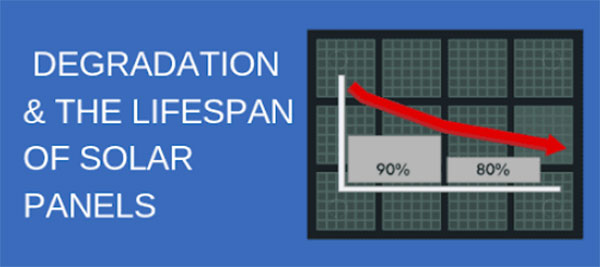
Upgrading and Replacement
With advancements in solar technology, upgrading or replacing solar panels can enhance efficiency, performance, and value. Understanding when and how to upgrade or replace your solar panels is essential for maximizing the benefits of solar energy.
Signs Your Solar Panels Need Replacement
- Age of the Panels: If your solar panels are nearing or have surpassed their expected lifespan (typically 25-30 years), it's time to consider replacement.
- Reduced Efficiency: A significant drop in power output or efficiency, more than the expected annual degradation rate (about 0.5% to 1%), indicates that the panels might need replacing.
- Physical Damage: Severe physical damage, like large cracks or breakages that cannot be repaired, necessitates replacement.
- Frequent Repairs: If the panels require constant repairs, replacing them could be more cost-effective in the long run.
- Obsolete Technology: Panels with outdated technology may not perform as efficiently as newer models, making an upgrade beneficial.
Options for Upgrading Solar Panel Systems
- Higher Efficiency Panels: Consider replacing old panels with newer, more efficient models. Modern solar panels offer higher efficiency rates and better performance, even in lower light conditions.
- Adding More Panels: If space allows, adding more panels can increase your system's overall power output and efficiency.
- Smart Inverters and Solar Batteries: Upgrading to smart inverters or adding solar batteries can enhance energy storage and management, allowing for greater control and utilization of solar power.
- Integrated Systems: Consider integrating your solar panels with other smart home systems for improved energy management and monitoring.
Economic and Longevity Considerations
- Cost of Upgrading: Upgrading a solar panel system can be a significant investment. However, the long-term energy savings, improved efficiency, and potential increase in property value can offset these initial costs.
- Return on Investment: Upgrading to more efficient panels or expanding your system can lead to increased energy production, resulting in greater savings on electricity bills and a faster return on investment.
- Warranty and Longevity: New panels come with updated warranties, offering peace of mind for their expected lifespan. Modern panels also tend to have longer lifespans and slower degradation rates.
In summary, recognizing the signs that your solar panels need replacement and exploring options for upgrading are crucial steps in maintaining an efficient and effective solar energy system. Upgrading or replacing your solar panels can result in increased efficiency, energy savings, and enhanced property value, making it a worthwhile consideration for maximizing the benefits of solar technology.
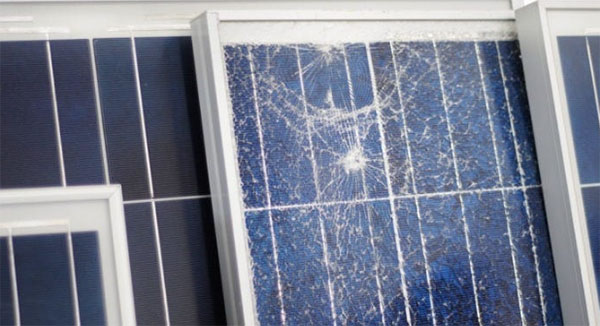
Environmental and Economic Considerations
Solar panels represent a significant advancement in sustainable energy, offering a clean alternative to fossil fuels. When evaluating solar panel use, it's crucial to consider both environmental and economic factors.
Impact of Solar Panels on the Environment
- Reduction in Carbon Footprint: Solar panels significantly reduce carbon emissions by providing a renewable source of energy. They do not emit greenhouse gases during operation, contributing to the fight against climate change.
- Energy Use in Production: The production of solar panels does require energy, often sourced from traditional means. However, the energy payback time—the time it takes for a solar panel to generate the energy used in its production—is typically short, ranging from 1 to 4 years.
- Recycling and Waste Management: End-of-life management of solar panels is an area of environmental concern. Recycling technologies are improving, but it's important to consider the disposal impact of panels.
Cost-Benefit Analysis of Long-Term Solar Panel Use
- Initial Investment vs. Long-Term Savings: The upfront cost of installing solar panels can be substantial. However, the long-term savings on electricity bills, often coupled with government incentives, can offset this initial investment.
- Increased Property Values: Homes with solar panels often see an increase in property value. This increase reflects the future energy savings and environmental benefits associated with the installation.
- Dependence on Fossil Fuels: Reducing reliance on fossil fuels can lead to more stable energy costs over time, as solar energy is not subject to the same price fluctuations.
Recommendation: Tongwei Solar Panels
- High Efficiency: Tongwei's solar panels are known for their high efficiency, making them a great choice for maximizing energy production even in limited spaces.
- Durability and Quality: Tongwei panels are made with high-quality materials, ensuring durability and a long lifespan, which is crucial for both economic and environmental sustainability.
- Cost-Effective Solutions: While offering high-quality products, Tongwei also focuses on making solar energy accessible and affordable, making them a cost-effective solution for those looking to invest in solar energy.
In summary, solar panels offer a clean, renewable energy source that can significantly reduce carbon emissions and dependence on fossil fuels. The economic benefits, including long-term savings and increased property values, often justify the initial investment. Companies like Tongwei are at the forefront of providing high-efficiency, cost-effective solar panel solutions, making the switch to solar energy both an environmentally and economically sound decision.






